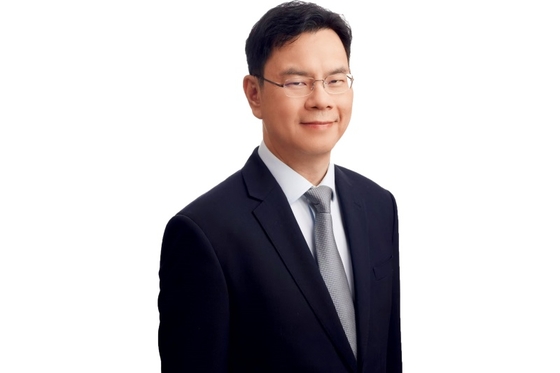Our Terms & Conditions | Our Privacy Policy
Singapore Central Bank Chief Discusses Inflation, Crypto and AI Challenges
As one of the wealthiest nations globally, Singapore’s economy is profoundly integrated into international trade, with the annual trade volume exceeding three times its GDP, highlighting its sensitivity to global economic conditions [para. 1]. The Monetary Authority of Singapore (MAS), being a pivotal central bank in Asia, significantly influences both domestic and global financial markets [para. 1][para. 3]. Recent years witnessed various challenges stemming from the COVID-19 pandemic, geopolitical tensions, and anti-globalization sentiments that disrupted global supply chains and escalated inflation, prompting central banks like MAS to take measures to control inflation [para. 2][para. 3].
Singapore has been relatively successful in managing inflation. In October 2024, MAS announced that it would maintain its stable monetary policy amid declining core inflation and economic growth, influencing Singapore’s trade and capital flows [para. 4]. Singapore is at the forefront of fintech regulation, aiming to harness new technologies while managing associated risks [para. 5].
Chia Der Jiun, the new Managing Director of MAS as of January 2024, emphasized the importance of stable monetary policies post-pandemic. He highlighted Singapore’s experience with global inflation spikes and the country’s decisive monetary tightening, which led to a significant appreciation of the Singapore dollar [para. 6][para. 7]. This policy approach has curbed inflation and maintained purchasing power, helping stabilize inflation expectations [para. 8].
Singapore’s core inflation rate dropped to 2.1% by October 2024, showcasing the efficacy of its monetary policies. The MAS anticipates a further decrease to around 2% by 2025, with GDP growth stabilizing [para. 9]. However, various risks, such as labor market performance and geopolitical tensions, could impact cost dynamics and inflation projections [para. 10].
In terms of digital currencies, Singapore is exploring wholesale CBDCs for secure settlement assets along with asset tokenization projects, yet has shown restraint towards retail CBDCs due to existing efficient electronic payments [para. 11][para. 12]. Singapore’s collaboration with China on cross-border digital yuan transactions is a step towards broader digital currency applications without a current emphasis on issuing a retail CBDC [para. 12][para. 13].
Moreover, wholesale CBDCs could transform cross-border payments and securities settlements, reducing risks and enhancing efficiency [para. 14]. MAS is working on policy frameworks to ensure successful cross-border digital currency infrastructure interoperability [para. 14].
Singapore’s cautious approach to cryptocurrency regulation focuses on stringent licensing for cryptocurrency exchanges, emphasizing management suitability, compliance, and risk control to prevent money laundering and other risks [para. 15]. The number of Major Payment Institution (MPI) licenses has grown significantly since 2020, indicating a well-regulated expansion in the digital payment sector [para. 15]. As the digital asset landscape evolves, MAS continuously enhances its regulatory framework to balance innovation and risk management effectively [para. 16-18]. This includes measures for consumer protection, market integrity, and stablecoin regulation, alongside global collaboration to set international regulatory standards [para. 17].
In fintech, Singapore has flourished, growing from fewer than 50 fintech firms in 2015 to over 1,400 today, supported by initiatives like the Singapore FinTech Festival [para. 20]. MAS investments in digital infrastructure have facilitated digital finance advancements, especially useful during the COVID-19 pandemic [para. 21]. They also spearhead efforts to improve cross-border payments, reduce remittance costs, and enhance ESG data quality through initiatives like Greenprint [para. 22][para. 23].
Lastly, Singapore is addressing challenges posed by emerging technologies like generative AI, ensuring responsible use through principles of governance and assessment methodologies such as FEAT and Project MindForge [para. 25][para. 26]. To encourage further innovation, MAS has allocated additional funds from the Financial Sector Technology and Innovation scheme for AI and quantum technology exploration [para. 26].
AI generated, for reference only
Images are for reference only.Images and contents gathered automatic from google or 3rd party sources.All rights on the images and contents are with their legal original owners.



Comments are closed.